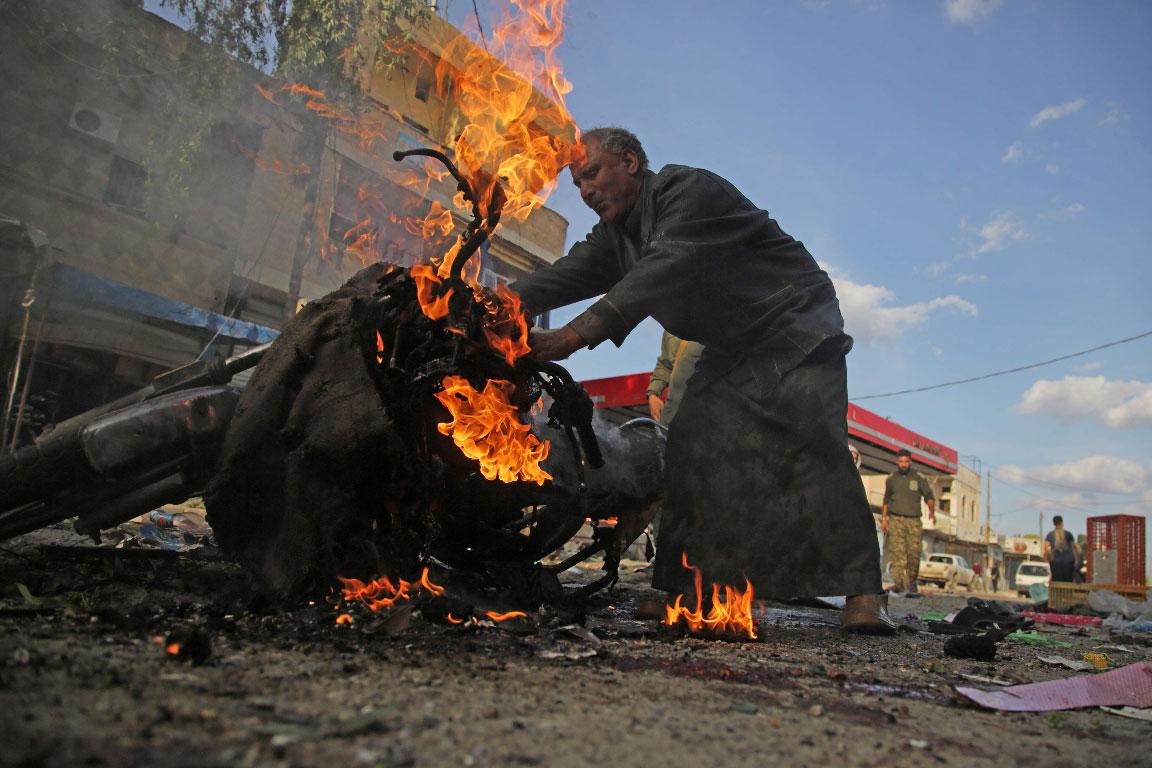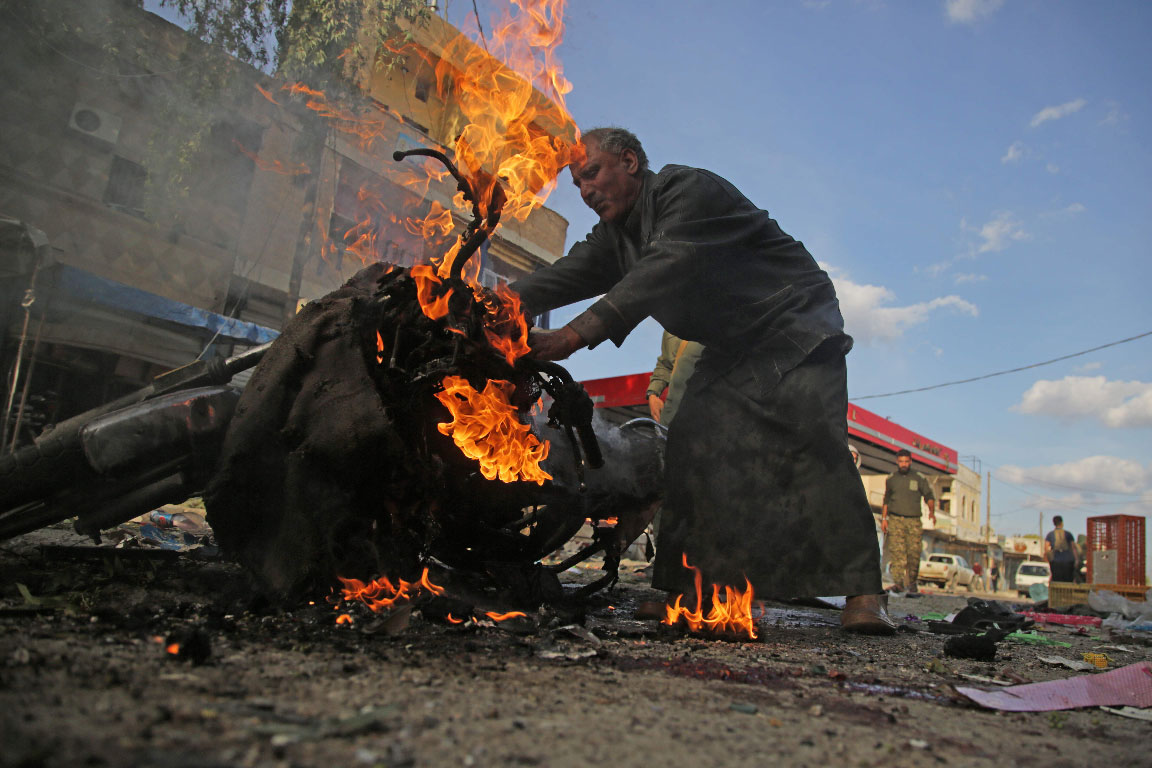Explosion in Syrian town on Turkish border kills 13
TEL ABYAD - At least 13 people were killed and more than 30 injured in the Syrian town of Tel Abyad on Turkey's border after a car bomb exploded in a market on Saturday, according to Turkish state media and the Syrian Observatory for Human Rights.
Turkey's government blamed the Syrian Kurdish YPG militia and the Turkey-based Kurdistan Workers Party (PKK) for the "inhuman attack". The Observatory said pro-Turkey fighters and civilians were among the dead and injured in the car explosion.
Turkey's state-owned Anadolu Agency said 13 were killed after a "bomb-laden vehicle" exploded in a marketplace in the centre of Tel Abyad.
Tel Abyad is one of two major border towns that were the initial focus of Turkey's cross-border assault in recent weeks to capture territory from Kurdish militia in northern Syria.
The town is where some of the heaviest fighting has taken place since the Turkish military launched its incursion last month in northeast Syria against the YPG, which for years was allied to the United States in the fight against Islamic State.
"We condemn this inhuman attack of the bloody PKK/YPG terrorists who attacked the innocent civilians of Tel Abyad who returned to their homes and lands as a result of the Operation Peace Spring," Turkey's defence ministry said on Twitter.
A spokesman for the Syrian Democratic Forces, which includes the YPG, was not immediately available for comment.
The Kurdistan Workers Party (PKK), based in Turkey, is designated a terrorist group by Turkey and its Western allies. Ankara considers the YPG a terrorist group because of its ties to PKK Kurdish militants in southeast Turkey.
On Oct. 9, days after President Donald Trump's abrupt decision to pull out US troops, Turkey and allied Syrian rebels launched a cross-border offensive and seized control of Tel Abyad and some 120 km of land along the frontier.
The incursion killed hundreds and caused 300,000 people to flee their homes in the latest humanitarian disaster in Syria's brutal eight-year war.
Politics for peace
The US pullout from Kurdish-held areas in northeast Syria has allowed Damascus, Ankara and Moscow to carve up the Kurds' now-defunct autonomous region.
Turkey and Russia, the main backer of the Assad regime in Syria, struck a deal in Sochi for more Kurdish forces to withdraw from the frontier on both sides of that Turkish-held area, under the supervision of Russian and Syrian forces.
On Friday, Turkish and Russian troops in armoured vehicles held their first joint ground patrols in northeast Syria under the deal, to monitor any YPG presence in the territory near Turkey's border.
The YPG forms the main fighting unit of the Syrian Democratic Forces (SDF), a Kurdish-led umbrella group of Kurdish, Arab and Assyrian militias that were allied to the US-led coalition in its campaign against IS jihadists in Syria.
The commander of the SDF said he mistrusted both the Syrian government and Russia in remarks published Saturday, but said that he would follow "a political path" for the sake of peace.
Mazlum Abdi, also known as Kobani, told Italy's La Repubblica newspaper that future negotiations required guarantees from the international community, including Europe.
"We have no confidence, but it's not possible to solve Syria's problems without using the political path. We must negotiate," he said.
In the current negotiations, Abdi said Russia was acting as an intermediary between his group and the government of Syrian President Bashar al-Assad.
"We will not be party to an agreement that does not include the defence of our people and its political, administrative and cultural liberty," he cautioned.
He said there had also been talks with the US government which had "offered guarantees but there is a certain slowness in applying these guarantees on the ground".
He condemned the US decision to pull out of Syria, saying the move gave "the green light for the Turkish attack against our people" and violated agreements between his group and Washington.
Asked about Turkish President Recep Erdogan's wish to have him arrested, Abdi said "what else do you expect from a person who doesn't hide from the world his project to massacre our people".


